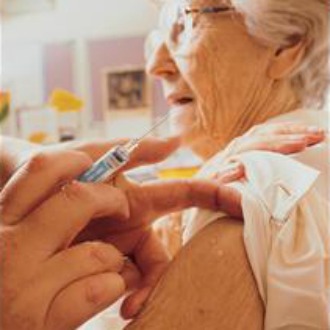Public health chiefs blame pharmacy flu scheme for drop in shingles jab uptake

NHS England’s national pharmacy flu vaccination scheme has likely hampered GPs’ ability to vaccinate elderly people against shingles, public health chiefs have admitted.
Public Health England (PHE) said the introduction of the pharmacy scheme – where pharmacists can compete with GP practices to give eligible patients the seasonal flu jab on the NHS – is a key reason the uptake of shingles has fallen again in the past year.
It comes after Pulse highlighted that GP practices were missing out on giving their elderly patients the shingles jab because many were no longer turning up to flu clinics, having had their jab at their local pharmacy.
In its latest monthly circular on vaccines, PHE said its early estimates of shingles vaccine coverage for this year indicate that uptake has fallen again.
For the first three months of the 2016/17 programme, coverage had decreased by 4.6% compared with the previous year for both the routine and catch-up cohorts. This marks a bigger drop in uptake than in previous years, although it continues a declining trend since the scheme was first introduced in 2013/14.
Between September and November 2016, just shy of one third – 33.2% – of the routine 70-year-old cohort was vaccinated, while 33.6% of the 78-year-old catch-up cohort was vaccinated.
PHE advisors said that factors likely contributing to the decline included ‘patients receiving flu vaccine at pharmacies or other providers than their GP practices and therefore not being identified for shingles vaccination during flu immunisation sessions’ and the ‘lack of call/re-call in the service specification to allow mop up of those who missed immunisation during the flu season’.
They also suggested that GPs were too busy and not taking every opportunity to vaccinate eligible people – noting that recent expansion of flu and other immunisation programmes ‘putting additional demand on primary care’ and ‘difficulties in practices identifying eligible patients during busy influenza immunisation clinics’ were other potential causes for the fall in uptake.
PHE had previously praised GPs for ‘high uptake’ of the shingles vaccine the first year the programme was introduced, but last year sent out reminders to practices to make use of the flu clinic as a ‘one-stop shop’ and offer the vaccine, because uptake had fallen.
Dr Andrew Green, GPC clinical and prescribing policy lead, said it was ‘a prime example of not realising what hidden extra activities go on when services are delivered by those with overall responsibility for a person’s health’.
Dr Green added that he expected the scheme would continue despite ‘little evidence of improved [flu vaccine] uptake’, but said this ‘ought to be seen as a warning for those who believe that salami-slicing GP services will improve care’.
It comes after GP leaders have repeatedly warned the pharmacy flu scheme would disrupt the GP-run flu vaccination campaign, with one consequence being patients would miss out on annual check-ups that they often carry out in elderly and at-risk groups during flu clinics.
Concerns were also raised about the rationale behind the shingles vaccination programme when it was first launched. However, PHE has continued to actively promote the vaccine through surgeries and national advertising.
How the pharmacy flu scheme has impacted on GPs
GP leaders warned that expanding the pharmacy-led scheme last flu season risked leaving GPs out of pocket and disrupting the established flu vaccination campaign, based on results from a series of pilots across England and Wales, since backed up by a recently reported London-wide scheme.
So far all the evidence suggests they were right. Coverage fell in all at-risk groups last flu season, with LMC leaders warning pharmacists were merely competing for ‘low-hanging fruit’ – motivated patients who would normally get their flu jab at their GP practice’s flu clinic.
In some areas pharmacists were even found to have ‘poached’ patients from their GP, under advice from NHS bosses. The GPC estimated the scheme may have cost practices collectively as much as £4m in lost vaccine payments.
There are also concerns it is adding to practices’ administrative workload in order to keep track of who has been vaccinated, and disrupted other timely check-ups and services usually delivered at the same time as the flu jab – such as shingles vaccinations in the elderly.
Pulse October survey
Take our July 2025 survey to potentially win £1.000 worth of tokens

Visit Pulse Reference for details on 140 symptoms, including easily searchable symptoms and categories, offering you a free platform to check symptoms and receive potential diagnoses during consultations.












